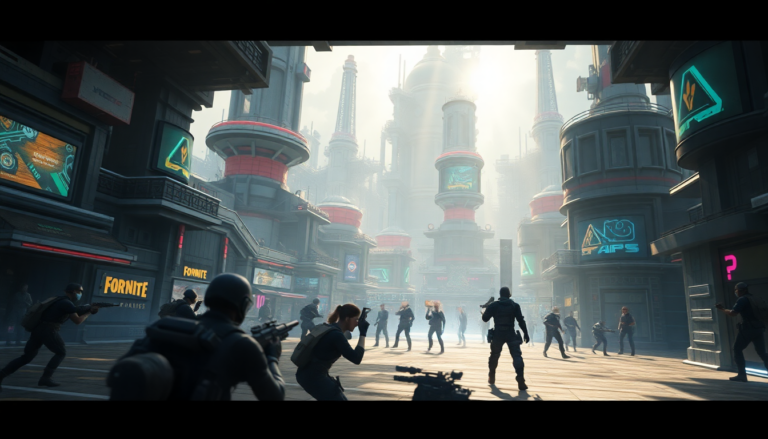Argomenti trattati
The rise of artificial intelligence (AI) in gaming has sparked a wave of excitement and concern within the industry. This past week, Fortnite made headlines by introducing an AI version of Darth Vader, voiced by James Earl Jones, to interact with players. While this novelty offers some lighthearted fun, it also highlights the broader implications of AI in gaming. Major publishers like EA and Take-Two are increasingly vocal about their apprehensions regarding AI technologies, addressing potential legal and reputational risks associated with their use.
Legal complexities of generative AI
At the heart of the issue lies the legal ambiguity surrounding generative AI technologies. Companies such as Google, Meta, and OpenAI are rapidly advancing their AI models, often trained using vast datasets from across the internet, including copyrighted materials. This has led to an ongoing wave of litigation from content creators, including journalists and artists, who feel their rights are being infringed upon. The uncertainty surrounding what constitutes fair use in AI training raises a crucial question: if game developers incorporate AI-generated assets into their titles, could they face legal repercussions down the line?
Take-Two has openly expressed its concerns, stating that the use of AI in games presents social and ethical dilemmas that could lead to significant legal challenges. The fear is that should legal rulings deem these practices illegal, developers might find themselves in a position where they have to overhaul their games or risk facing lawsuits. This looming threat makes it crucial for publishers to navigate the evolving legal landscape with caution.
Reputational risks in the gaming community
Beyond the legal challenges, the reputational impact of AI in gaming cannot be understated. Gamers today are increasingly aware of how AI technologies are integrated into their favorite titles. There have been instances where games that utilize generative AI have faced backlash from the community, with players labeling such efforts as “lazy” or “cheap.” This sentiment can lead to boycotts and significant damage to a brand’s reputation. For developers, this means that the use of AI could potentially alienate their core audience, especially if they feel that the quality of their beloved games is being compromised.
Moreover, the ongoing strike among video game voice actors, centered around the licensing of voices for AI training, adds another layer of complexity to this discussion. The debate over how AI might replace human talent in games is a hot topic, with many artists and writers feeling threatened by the encroachment of AI technologies. Even successful implementations, like Fortnite’s Darth Vader, raise questions about the future of voice acting in video games.
The balance of innovation and tradition
As AI technologies continue to evolve, the gaming industry faces a critical crossroads. There is undeniable potential for AI to enhance game development, offering innovative solutions for technical challenges. However, the temptation to use AI for creative aspects like art and voice work has been met with skepticism from gamers and creators alike. The backlash against AI-generated content echoes earlier trends seen with the rise and fall of web3 and NFT ventures in gaming, which ultimately failed to resonate with players.
It’s evident that while AI can reshape the gaming landscape, developers must tread carefully. The gaming community values creativity and human touch, and any shifts towards automation in game design could lead to a disconnect with players. The challenge lies in finding a balance between leveraging AI for efficiency without sacrificing the qualities that make games truly engaging and enjoyable.
As the industry grapples with these challenges, it remains to be seen how AI will be integrated into gaming. For now, gamers seem determined to uphold the standards that define their experience, resisting the urge to let AI take over the creative reins. Only time will tell whether AI will become a valuable ally in game development or if it will remain an outsider, viewed with skepticism and caution.

